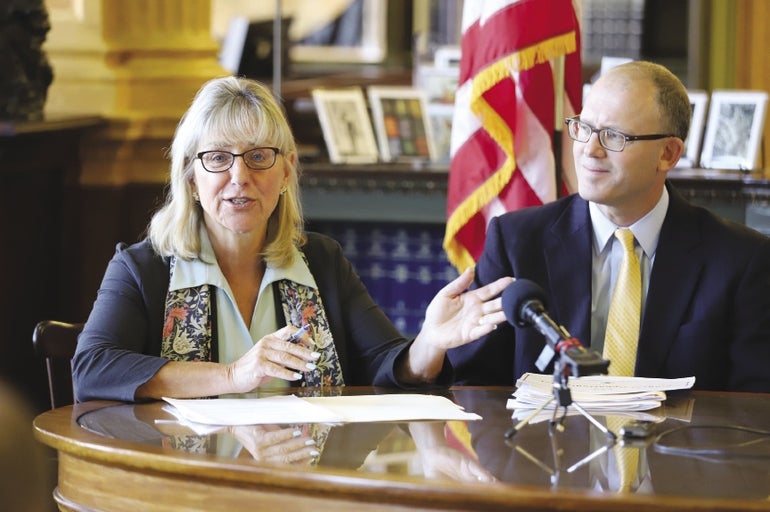Last month, Senate President Karen Spilka pitched what she described as a “moonshot” — a long-term effort to reimagine care systems in the state to better to support the people, particularly women, caring for loved ones of all ages and help them stay in the workforce.
That process will take a step forward on Wednesday, when a Senate committee holds a hearing focused on intergenerational care.
Spilka said the hearing will help senators get a sense of short- and long-term needs around child and elder care, suggestions for how to address them, and what roles different sectors — like caregivers and the business community — can play.
“All these folks that have been working on this for years if not decades, what ideas do they have in reimagining this, and what steps can they take to help us get where we want to be?” she said.
Spilka said care needs to be made more affordable and accessible, with structures that can support families adjusting to hybrids of in-person and remote work and other changes brought on by COVID-19.
If people work more flexible hours, she said, they may need elder and child care beyond the traditional 9 a.m. to 5 p.m. business day, she said. If they’re working from home rather than commuting into Boston or a downtown area, they may want child care options that are closer to their home than to their workplace.
Spilka joined Sen. Adam Hinds, whom she tapped to chair a special committee envisioning a post-pandemic Massachusetts, for a conversation with reporters ahead of Wednesday’s hearing.
Hinds, a Pittsfield Democrat, said his panel will work through the details of the vision Spilka laid out and seek to figure out the best ways to accomplish it, based on the data and feedback they collect.
That effort, he said, will include mapping out “the geography of care” — where services are currently available — and identifying any obstacles around financing, oversight and other logistics of creating an intergenerational system.
Spilka proposed using state and federal dollars to create an intergenerational care system during an April 13 address to the Greater Boston Chamber of Commerce, saying that the COVID-19 crisis had spotlighted the challenges families face and challenging the business community to help lawmakers think more broadly about what their workers need to be supported at home.
She suggested planning for intergenerational care centers, modeled after the Family Resource Centers that were established in 2015 as an entry point for families with children under 18 to access behavioral and mental health or housing supports to keep children out of the juvenile justice system. The new centers, Spilka said in that speech, could start as information hubs but eventually become facilities where child care, elder care and care for those with disabilities are co-located in one community-based site.
Hinds on Tuesday voiced enthusiasm for that concept.
“When you start to look at it that way, and you’re talking about integrating and connecting existing services, now all of a sudden in my mind, the accessibility just explodes,” he said. “If every child care provider and ASAP structure — aging services access points — and senior centers and Family Resource Centers have the intergenerational care, then the accessibility map starts to change.”
Spilka said that she was not ruling out any potential ways to pay for the effort, including a system that would involve companies paying into a care system.
“Whenever I start looking at something, my belief is everything is on the table,” she said.
The Ashland Democrat pointed to the $500 million Massachusetts is slated to receive in federal relief funding for child care, describing that as “a lot of dough” and saying that policymakers must “take a good hard look” at how to spend it.
She said that whatever steps are ultimately taken toward intergenerational care, they will likely be phased in over time.
Hinds’ committee is exploring other areas as well and so far has held listening sessions covering topics including digital infrastructure, housing and education. He said he imagines releasing an initial set of recommendations “by the fall,” potentially with a second round coming next year.
“This isn’t a typical committee,” he said. “We can’t just wait until the end of a two-year session and put forward recommendations, because the changes are happening in real time, and so we want to be responsive.”

